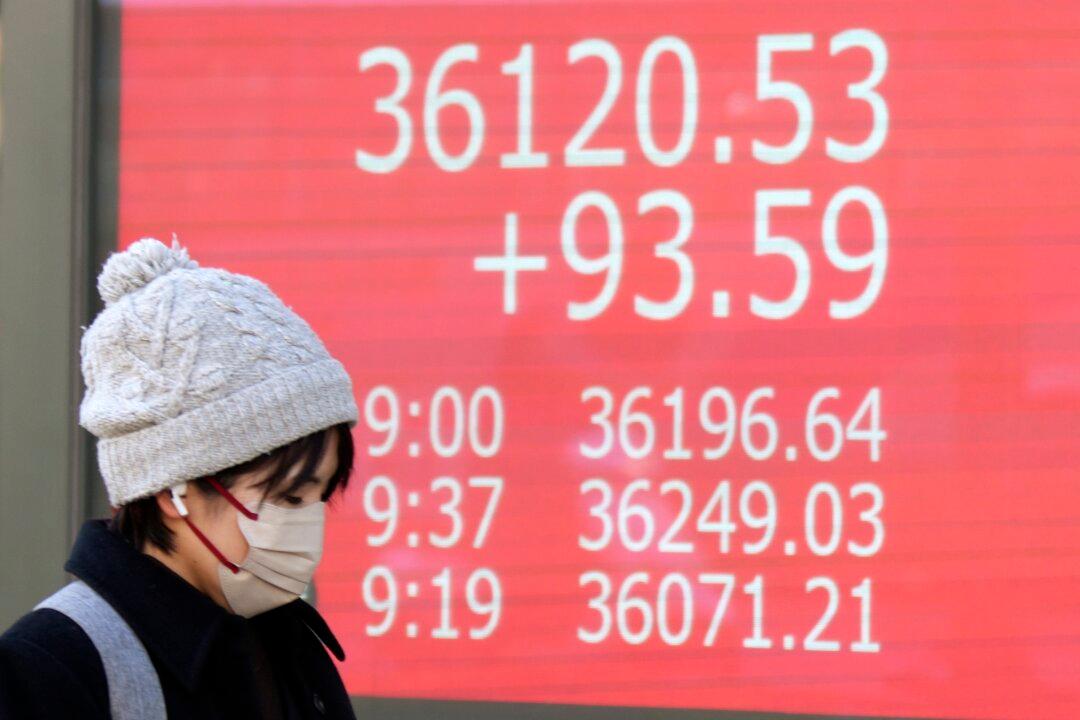HONG KONG—World stocks were mixed Wednesday after technology shares led Wall Street broadly lower on Tuesday, with investors waiting for chipmaker Nvidia’s quarterly earnings report.
The report, which will come out later in the day, will put stock markets in Hong Kong, China, and Taiwan on alert as these three regions contributed over 45 percent of Nvidia’s revenues in the third quarter.





